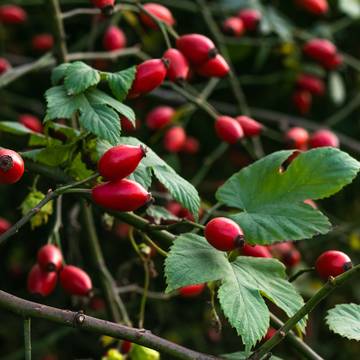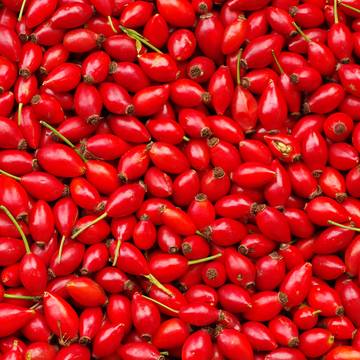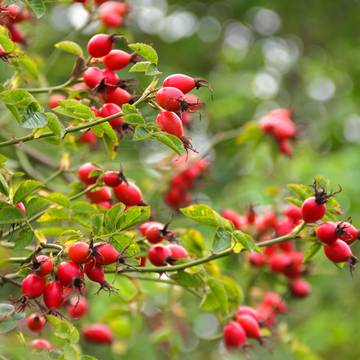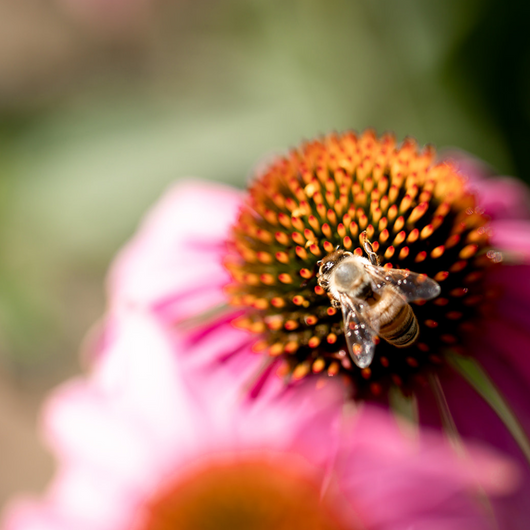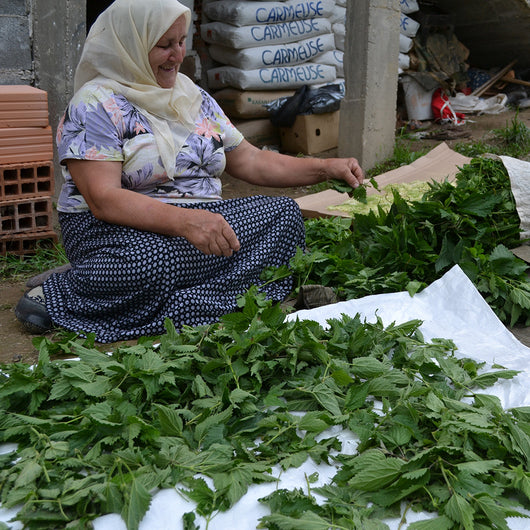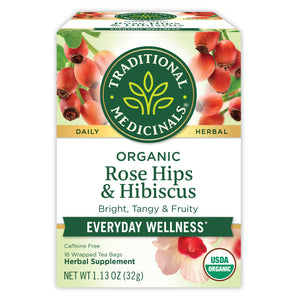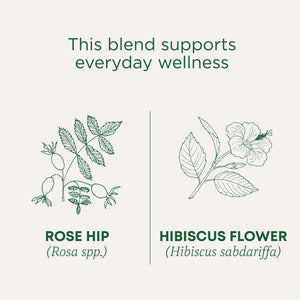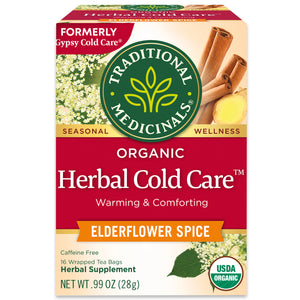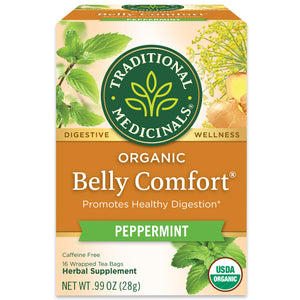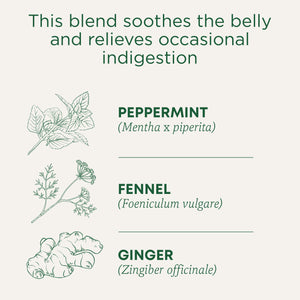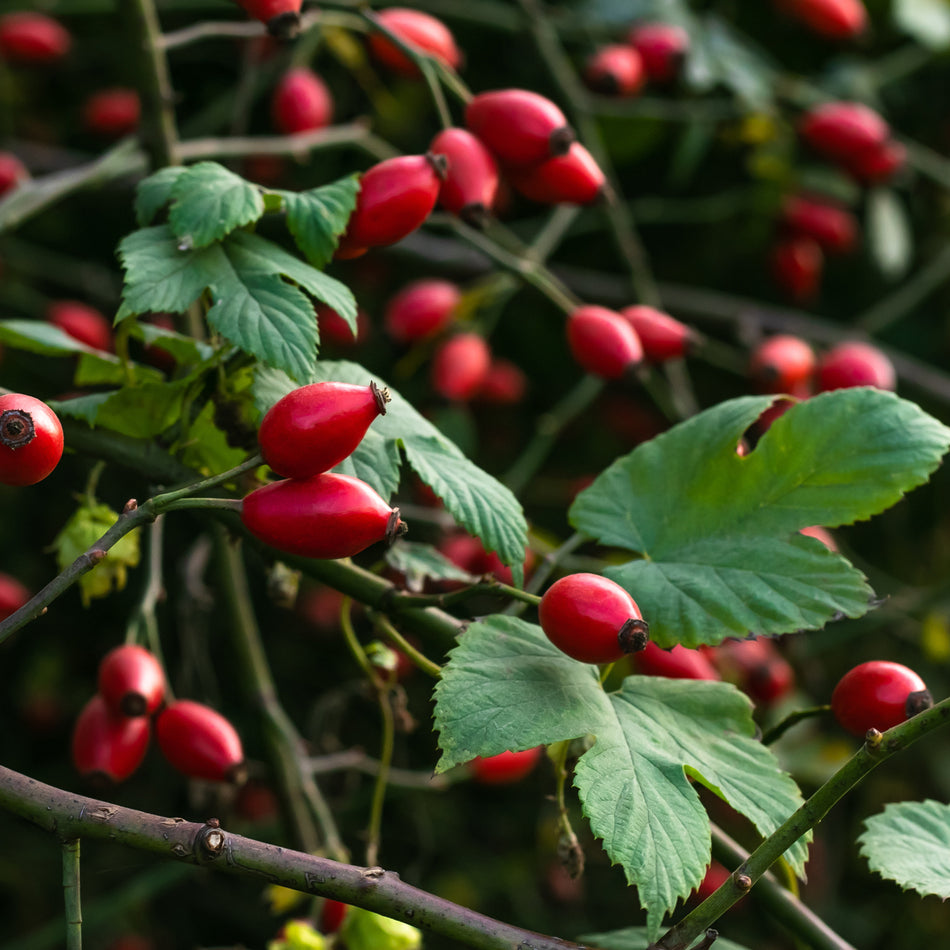
Rose Hips
Rosa caninaUsed as a food and herbal medicine throughout the world, sweet and tangy rose hip is a lovely botanical for daily wellness.*
Fruit of the rose, this wild food symbolizes true love and adoration.
What are the Benefits of Rose Hips?
When foraging for wild edible foods in the late summer to early fall, one of nature's more delectable and nutritious offerings is the wild rose hip. Depending on where you are foraging, a rose bush filled with edible rose hips is easy to spot. As the rest of the landscape becomes leafless and thirsty, these rose bushes yield an abundance of bright red, berry-like, flavor-packed, and fruits that are ready to pick and plop into your basket.
Rose hip is a classic herb that is also a beloved wintertime tonic to promote overall wellness and vitality.* Some consider it nature’s gift of nourishment after the berries and stone fruits of summer have gone dormant. As an herbal medicine, the benefits of rose hips are best extracted in hot water, making rose hip tea a tasty dose of wellness.
Considered a “refrigerant” in Traditional Chinese Medicine, rose hip is traditionally used in situations where cooling, soothing, drying and/or movement are needed.
Folklore & Historical Use of Rose Hips
Long enjoyed as a food throughout history, rose hips have rightly earned a reputation for promoting good health. The ancient Chinese, Greeks, Romans and Persians used them in traditional herbal medicine. During the Dark Ages, legend has it that raiding Vikings fortified themselves with rose hips while invading foreign lands. During World War II, when food sources were limited, British children took doses of rose hip syrup to promote wellness, while children in North America were paid to wild-forage rose hips at 3 pence (pennies) a pound.
With its bright, reddish-orange color and tart and tangy flavor, rose hips make for an excellent ingredient in jams, jellies, syrups, and vinegars.
Botanical Description & Habitat
Rose hips come primarily from the dog rose (Rosa canina) bush, a wild rose that takes its name from Pliny the Elder (23-79 BC), who first referenced its use by Gallic tribes to treat dog bites. This wild, thorny rose bush is native to Europe and Asia, but it has since been naturalized in North America and grows widely throughout the world. The dog rose often serves as a natural border, forming in hedges around meadows, forests, and pathways, and any other place where there is slightly acidic, loamy soil and good daytime sun exposure.
The word “hip” refers to the small, seed-bearing fruit on any plant in the rosaceae (rose) family. After the flowers die and the petals fall off its branches, the rose hips begin to form.
Our rose hips are responsibly harvested in the wild by hand at the peak of ripeness, when they are at the height of their potential.
The Business of Sustainable Plants
Our business is rooted in plants, and for us, it’s a business imperative that we care for the ecosystems where these plants live and thrive. We believe that everything is interconnected, which means supporting ecosystems and the farmers and collectors who harvest and gather our herbs. Finding opportunities to reduce or eliminate emissions at the source, we support organic and regenerative farming practices as well as voluntary certifications like Organic and FairWild. These ensure the absence of pesticides, herbicides, as well as the ongoing sustainability of wild collection, and the health and livelihoods of the collectors who forage. Josef Brinckmann, Traditional Medicinals’ Research Fellow, Medicinal Plants and Botanical Supply, asserts, “Everyone has a role to play in preserving biological diversity. One way of doing that is by equitably supporting the local people to serve as stewards of the land.”
It Starts with Organic
We choose to source organic because we believe in the positive impacts it has on environmental sustainability, biodiversity, and overall ecosystem health. Organic helps us increase transparency while prioritizing consumer well-being and farmer success, which is key to producing the high-quality herbs we source. In 2021, we procured 2.73 million pounds of certified organic herbs, over 99.7% of our total botanical herbs purchased. Volumes were down slightly from FY20 due to timing of inventories received.
The impact from organic farming creates a vital ecosystem through improved soil health, water quality, pollinator habitats, and biodiversity. Organic farms also have increased carbon sequestration potential through long-term carbon storage in the soil, helping to mitigate climate change.
One of the benefits of organic that we most value is farmer health. We care deeply about the people who produce our herbs, ensuring that they are not exposed to synthetic chemicals found in conventional agriculture.
Fair Trade
We believe that everyone deserves a fair wage for hard work. That’s one of the reasons why we’re committed to fair trade. Traditional Medicinals® is a registered Fair Trade “brand holder”, “licensee” and “manufacturer,” and our products are certified by Fair Trade USA, an independent third-party certifier. We were an early adopter of Fair Trade, having launched our first fair trade tea product in 1998, just one year after Fairtrade International (FLO) was established. We continue to work closely with our network of producers to help them to implement fair trade standards and get certified.
Belly Comfort® Peppermint Tea
Additional Information
Important Precautions:
Consult your healthcare practitioner prior to use if you are pregnant or breastfeeding.
Legal Disclaimer:
The information and other content in this article are designed to provide a general overview of the botany, cultural history, and traditional uses of this herb. It is not intended and should not be construed as health advice. Every person is unique and you should consult with your health care provider before using any herbal product or supplement.

